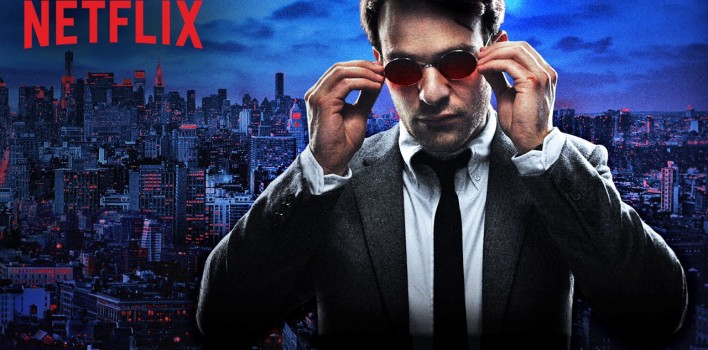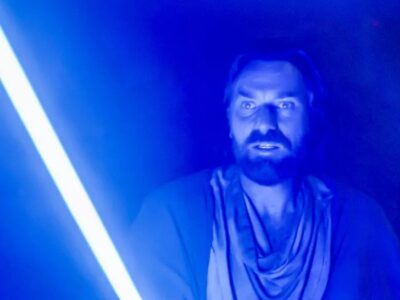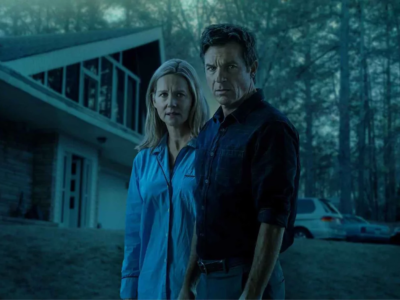Netflix Your Weekend | Daredevil
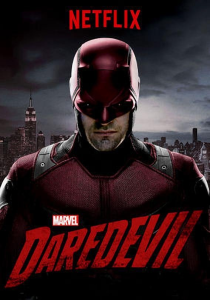 Marvel. Just say the name nowadays to even the most casual of fans to TV and film and you are bound to get a reaction. Whether you are the hopeless fanboy who had been eating up what they have been creating since Stan Lee edited and launched The Fantastic Four in 1961 or a movie fan that loves a big blockbuster, Marvel is revered. You might also be one of those detractors who has a legitimate gripe that Marvel and the MCU are ruining movie-making and now TV show-running with Agents of S.H.I.E.L.D. and Agent Carter already launched. Marvel is on top of the world right now and being a part of Disney and now having its hand in the comic series of Star Wars means they are firmly entrenched in the popular culture.
Marvel. Just say the name nowadays to even the most casual of fans to TV and film and you are bound to get a reaction. Whether you are the hopeless fanboy who had been eating up what they have been creating since Stan Lee edited and launched The Fantastic Four in 1961 or a movie fan that loves a big blockbuster, Marvel is revered. You might also be one of those detractors who has a legitimate gripe that Marvel and the MCU are ruining movie-making and now TV show-running with Agents of S.H.I.E.L.D. and Agent Carter already launched. Marvel is on top of the world right now and being a part of Disney and now having its hand in the comic series of Star Wars means they are firmly entrenched in the popular culture.
The third show in Marvel’s expanding of the MCU to television is the first show that has been co-produced with Netflix, the recently released Daredevil. Launching in the typical “release a whole season at once” format Netflix has followed with other shows like Orange Is The New Black and House of Cards, all 13 episodes of the first season released last week, Friday, April 10th, 2015. Daredevil focus on the story of Matt Murdock (Charlie Cox), who as a child was blinded by radioactive chemicals in an accident. However, the incident heightened his others senses and allows him supernatural powers to see and perceive the world in a unique way. As an adult, he utilizes these powers to protect his neighborhood of Hell’s Kitchen in New York as a lawyer, where he practices with his friend Foggy Nelson (Elden Henson), and by night as the vigilante hero, Daredevil.
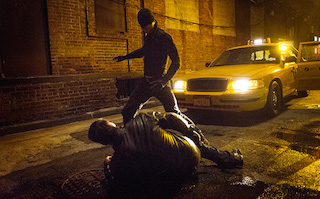 The show, according to show-runner and writer/director Steven S. DeKnight, is based off of Frank Miller’s incredibly successful and seminal Daredevil short comic series, “The Man Without Fear”. He also says in the same interview that the show was grabbing influences from The Wire, Taxi Driver, and The French Connection. After only two episodes of the show, both written by the TV show’s creator, Drew Goddard (Mad Men, LOST, The Sopranos), you can see and feel that vibe resonating in every shot and dark corner (most of the corners are dark, by the way). The lighting has a saturated blackness that evokes the blurred reality of good and evil in Daredevil’s world and is fitting for Murdock’s regular moonlighting, maybe a better word to match the cinematography is “streetlighting”, as the masked vigilante. This is not to be confused with “Street Fighting”, which he does plenty of fighting off the harsh and conniving criminal machinations of Kingpin, aka Wilson Fisk (Vincent D’Onofrio), and his cronies.
The show, according to show-runner and writer/director Steven S. DeKnight, is based off of Frank Miller’s incredibly successful and seminal Daredevil short comic series, “The Man Without Fear”. He also says in the same interview that the show was grabbing influences from The Wire, Taxi Driver, and The French Connection. After only two episodes of the show, both written by the TV show’s creator, Drew Goddard (Mad Men, LOST, The Sopranos), you can see and feel that vibe resonating in every shot and dark corner (most of the corners are dark, by the way). The lighting has a saturated blackness that evokes the blurred reality of good and evil in Daredevil’s world and is fitting for Murdock’s regular moonlighting, maybe a better word to match the cinematography is “streetlighting”, as the masked vigilante. This is not to be confused with “Street Fighting”, which he does plenty of fighting off the harsh and conniving criminal machinations of Kingpin, aka Wilson Fisk (Vincent D’Onofrio), and his cronies.
One scene that is a magnificent microcosm for the overall tone of the series, thus far, is the artfully filmed and choreographed climactic fight of the second episode, Cut Man. Being as *spoiler* sensitive as I can; Murdock stands at the end of one long hallway with the door where a small child is being held captive on the other end. Standing between him are two doors with at least ten Russian henchmen inside both keeping watch over this captive. In one long, claustrophobic take, Murdock takes on these ten bad guys within the confines of just the hallway. Still remaining lit like any dank, rundown building hallway would be, Murdock grunts, bodyslams, kicks, and punches his way through all ten baddies and once they are disposed of, rescues the young boy. All the while, even as he enters the door at the end of the hall, the camera has remained in this hallway and the episode cuts out on a shot focused on the open door. While it has poignant narrative qualities, this scene encapsulates the confined and shadowy atmosphere Daredevil is aiming for.
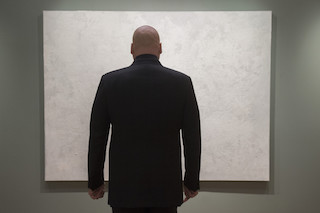 That shadowy blur permeates the broader themes of the show, as well. Like Nolan showed us in his Dark Knight trilogy, the nature of fighting good and evil can be a difficult space to occupy. Justice, even on as macro a scale as one neighborhood, can be difficult to mete out and one person’s good guy is another person’s bad guy. Wilson Fisk, played incredibly well by D’Onofrio, is just as much as sympathetic character as Murdock. He believes in creating a newer, better neighborhood in Hell’s Kitchen. However, that will be accomplished through the purging of what he considers to be the “bad elements” and replaced with his empire in its place. Kingpin is Daredevil’s The Joker, if The Joker had came to his senses and become a sophisticated, art-loving entrepreneur. He’s your local Lex Luthor, bald head and all.
That shadowy blur permeates the broader themes of the show, as well. Like Nolan showed us in his Dark Knight trilogy, the nature of fighting good and evil can be a difficult space to occupy. Justice, even on as macro a scale as one neighborhood, can be difficult to mete out and one person’s good guy is another person’s bad guy. Wilson Fisk, played incredibly well by D’Onofrio, is just as much as sympathetic character as Murdock. He believes in creating a newer, better neighborhood in Hell’s Kitchen. However, that will be accomplished through the purging of what he considers to be the “bad elements” and replaced with his empire in its place. Kingpin is Daredevil’s The Joker, if The Joker had came to his senses and become a sophisticated, art-loving entrepreneur. He’s your local Lex Luthor, bald head and all.
Murdock, being the good guy and fighting for the people of the neighborhood, recognizes the often foggy nature of his job both by day and night. His monologue in the court room during episode 3, “Rabbit in a Snowstorm”, sheds some light on how Murdock, both as the lawyer and as the superhero, views justice:
“Ladies and gentlemen of the jury, forgive me if I seem distracted. I’ve been preoccupied of late with questions of morality; of right and wrong, good and evil. Sometimes the delineation of the two is a sharp line, sometimes it is a blur. And oftentimes, it’s like pornography, you just know it when you see it.
A man is dead, I don’t mean to make light of that, but these questions, these questions are vital ones because they tether us to each other, to humanity. Not everyone feels this way, not everyone sees the sharp line, only the blur. A man is dead…a man is dead and my client, John Healy, took his life. This is not in dispute, it is a matter of record; a fact. And facts have no moral judgement, they merely state what is; not what we think of them, not what we feel, they just are. What was in my client’s heart when he took Mr. Prohaszka’s life, whether he is a good man or something else entirely, is irrelevant.
These questions of good and evil, as important as they are, have no place in a court of law. Only the facts matter. My client claims he acted in self-defense. Mr. Prohaszka’s associates have refused to make a statement regarding the incident. The only other witness, a frightened young woman, has stated that my client was pleasant and friendly and that she only saw the struggle with Mr. Prohaszka after it had started. These are the facts. Based on these, and these alone, the prosecution has failed to prove beyond a reasonable doubt that my client was not acting solely in self-defense. And those, ladies and gentlemen of the jury, are the facts. My client, based purely on the sanctity of the law which we’ve all sworn an oath to uphold, must be acquitted of these charges.
Now beyond that, beyond these walls, he may well face a judgement of his own making. But here, in this court room, the judgement is yours and yours alone.”
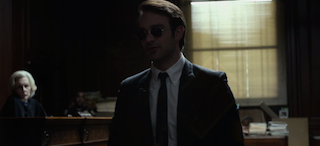 The morality of Daredevil and the justice of the show is found in the “outside walls” of the law. So much more happens that plays into Murdock’s faith, his relationship with Claire, and with his friend Foggy, as well as an appearance from Stick, but I do not want to give it away for those of you who haven’t seen it yet. That is why we recommend it to you and let us know what you think of the show and what it has to say.
The morality of Daredevil and the justice of the show is found in the “outside walls” of the law. So much more happens that plays into Murdock’s faith, his relationship with Claire, and with his friend Foggy, as well as an appearance from Stick, but I do not want to give it away for those of you who haven’t seen it yet. That is why we recommend it to you and let us know what you think of the show and what it has to say.


